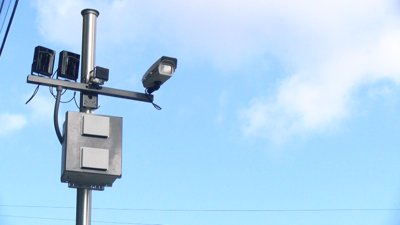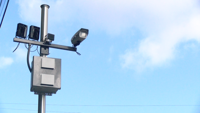SALISBURY, Md. - Maryland drivers caught speeding by automated cameras will soon face much steeper fines, as a new state law changes how violations are penalized.
House Bill 182, signed into law this spring, raises penalties for drivers caught by speed monitoring systems. Until now, tickets carried a flat $40 fine. Beginning Oct. 1, fines will be determined by how far over the limit a driver is traveling.
The penalty structure now ranges from $40 for traveling 12 to 15 miles per hour over the speed limit, to as much as $425 for drivers going 40 miles per hour or more above the posted limit.
Captain Ryan Koerner of the Salisbury Police Department said the goal of the change is safety, not revenue.
“It certainly makes people slow down,” Koerner said. “Speeding is a contributing factor to many accidents which contribute to injuries and sometimes fatalities.”
Koerner noted that most of the cameras in Salisbury are placed in school zones. State officials say protecting children is a top priority, and the law requires the State Highway Administration to form a workgroup to study how the cameras are used near schools. That group is expected to report findings to the governor and General Assembly by the end of 2025.
The technology behind the cameras has also changed in recent years. What were once box-shaped units stationed on the ground have now been upgraded in cities like Salisbury to sit on poles. The higher placement allows for clearer, overhead views of license plates.
Members of the community, however, are questioning the change. Salisbury local Mya Emond said she worries about the financial burden.
“I don’t want to spend my food money on a ticket that’s worth $80,” Emond said. “They should be putting that money toward helping homeless people here instead of raising fines.”
College students also voiced concerns. Salisbury University student Matt Ioannides said the higher penalties could hit young drivers the hardest.
“If I see the signs, I’m definitely slowing down because I know you can’t beat the cameras,” Ioannides said. “But I think the fines are a little bit excessive. It’s definitely going to negatively affect college students way more.”
The new penalties will take effect across the state on Oct. 1.


